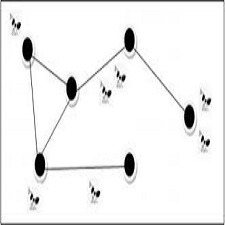توضیحات
ABSTRACT
Using grounded theory as an example, this paper examines three methodological questions that are generally applicable to all qualitative methods. How should the usual scientific canons be reinterpreted for qualitative research? How should researchers report the procedures and canons used in their research? What evaluative criteria should be used in judging the research products? We propose that the criteria should be adapted to fit the procedures of the method. We demonstrate how this can be done for grounded theory and suggest criteria for evaluating studies following this approach. We argue that other qualitative researchers might be similarly specific about their procedures and evaluative criteria.
INTRODUCTION
In this paper2 We address three related methodological issues. How should the usual scientific canons be redefined for qualitative research in social science? How should qualitative researchers report the procedures and canons used in their research? What evaluative criteria should be used in judging the products of particular studies? These products are not all identical in type because researchers variously aim at producing rich descriptions, ethnographic fact-finding accounts, narratives that yield verstehen, theoretical analyses of par- ticular phenomena, systematic theory, or politically intended consciousness-raising documents. Presumably, researchers who aim at such different goals will use at least somewhat different procedures. If so, we should not judge the results of their research by the same criteria. We will try to illuminate these methodological issues by demonstrating how we have redef’med the evaluation criteria in light of the procedures of grounded theory methodology. To do this we have first to explicate some of the procedural steps of grounded theory. We will conclude by offering a specific set of criteria for evaluating studies that follow the grounded theory approach. Our intent is to show how this can be done and to challenge other qualitative researchers to spell out their own procedures (Cf, Miles and Huberman, 1984; Manning, 1987) and evaluative criteria. Qualitative methods, like their quantitative cousins, can be systematically evaluated only if their canons and procedures are made explicit. In this section, we describe the unions and procedures of grounded theory. (For a more detailed explanation see: Glaser & Strauss, 1967; Glaser, 1978; Strauss, 1987; Strauss & Corbin, forthcoming 1990). First, however, we shall briefly note an issue well recognized by qualitative researchers. Qualitative studies (and research proposals) are often judged by quantitatively- oriented readers; by many, though not all, the judgment is made in terms of quantitative canons. Some qualitative researchers maintain that those canons are inappropriate to their work (Cf., Agar, 1986; Guba, 1981; Kirk and Miller, 1986), and probably most believe that modifications are needed to fit qualitative research.
چکیده
به عنوان مثال، با استفاده از نظریه پایه، در این مقاله، سه سوال روش شناختی مورد بررسی قرار می گیرد که به طور کلی در همه روش های کیفی کاربرد دارد. چگونه باید کانون های علمی معمول برای تحقیقات کیفی دوباره تفسیر شوند؟ محققین چگونه باید روش ها و کانون های مورد استفاده در تحقیقات خود را گزارش کنند؟ چه معیارهای ارزیابی باید در قضاوت در مورد محصولات تحقیقاتی استفاده شود؟ ما پیشنهاد می کنیم که معیارها باید متناسب با روش روش باشد. ما نشان می دهیم که چگونه می توان برای نظریه مبتنی بر این کار انجام داد و معیارهای ارزیابی مطالعات زیر را دنبال می کند. ما استدلال می کنیم که دیگر محققان کیفی می توانند به طور مشابه در مورد روش های آنها و معیارهای ارزیابی باشند.
مقدمه
در این مقاله2 ما سه مسائل متدولوژیکی مرتبط را مطرح می کنیم. چگونه باید کانون های علمی معمول برای تحقیقات کیفی در علوم اجتماعی دوباره تعریف شوند؟ چگونه باید محققان کیفی روش ها و کانون های مورد استفاده در تحقیقات خود را گزارش کنند؟ چه معیارهای ارزیابی باید در قضاوت در مورد محصولات مطالعات خاص استفاده شود؟ این محصولات در همه نوع یکسان نیستند، زیرا محققان به طور خاص در تولید توصیف غنی، حسابهای نگارش یافته ی واقعی واقعیت، روایت هایی که ورتهن را انجام می دهند، تحلیل های نظری از پدیده های خاص، نظریه ی سیستماتیک یا مدارک آگاهی سیاسی مورد توجه قرار می گیرند. احتمالا محققانی که به اهداف مختلف اهداف دارند حداقل از روشهای متفاوت استفاده خواهند کرد. اگر چنین است، ما نباید نتایج تحقیقات خود را با معیارهای مشابه قضاوت کنیم. ما سعی خواهیم کرد این مسائل روش شناختی را با نشان دادن اینکه چگونه معیارهای ارزیابی را با توجه به رویه های روش نظریه مبتنی بر معیارهای مجدد تعریف کردیم، روشن می کنیم. برای انجام این کار ابتدا باید برخی از مراحل رویهی نظریه پایه را بیان کنیم. ما با ارائه مجموعه ای خاص از معیارها برای ارزیابی مطالعات که به دنبال رویکرد تئوری پایه هستند، نتیجه می گیریم. هدف ما این است که نشان دهیم چطور می توان این کار را انجام داد و به دیگر محققان کیفی بپردازیم تا طرزالعمل های خودشان را بیان کنند (Cf، Miles and Huberman، 1984؛ Manning، 1987) و معیارهای ارزیابی. روش های کیفی، مانند کولی های کمی آنها، می توانند به صورت سیستماتیک ارزیابی شوند، تنها در صورتی که قاعده و روش های آنها آشکار شود. در این بخش، اتحادیه ها و رویه های نظریه پایه را توصیف می کنیم. (برای توضیح دقیق تر، نگاه کنید به: Glaser & Strauss، 1967؛ Glaser، 1978؛ استراوس، 1987؛ استراوس و کوربین، آینده 1990). اول، با این حال، ما به طور خلاصه یک موضوع را که توسط محققان کیفی به خوبی شناخته شده است، یاد می گیریم. مطالعات کیفی (و پیشنهادات تحقیقاتی) اغلب توسط خوانندگان کمی سنجیده مورد ارزیابی قرار می گیرند؛ توسط بسیاری، هر چند نه همه، قضاوت از نظر کانون های کمی ساخته شده است. برخي محققان كيفي معتقدند كه اين كانون ها در كار خود نامناسب هستند (Cf.، Agar، 1986؛ Guba، 1981؛ Kirk and Miller، 1986)، و احتمالا بيشتر معتقدند كه اصلاحات لازم براي تحقيق كيفي لازم است.
Year: 1990
Publisher : SPRINGER
By : Juliet Corbin and Anselm Strauss
File Information: English Language/ 19 Page / size: 1.44 KB
Only site members can download free of charge after registering and adding to the cart
سال : 1379
ناشر : SPRINGER
کاری از : ژولیت کربن و آنسلم استراس
اطلاعات فایل : زبان انگلیسی / 19 صفحه / حجم : KB 1.44


![Grounded Theory Research Procedures,[taliem.ir]](https://taliem.ir/wp-content/uploads/Grounded-Theory-Research-Procedurestaliem.ir_.jpg)





![The effects of strategic and manufacturing flexibilities and supply[taliem.ir]](https://taliem.ir/wp-content/uploads/The-effects-of-strategic-and-manufacturing-flexibilities-and-supplytaliem.ir_-150x150.jpg)
![A Novel Hybrid Network Architecture to Increase[taliem.ir]](https://taliem.ir/wp-content/uploads/A-Novel-Hybrid-Network-Architecture-to-Increasetaliem.ir_-150x150.jpg)
نقد و بررسیها
هنوز بررسیای ثبت نشده است.